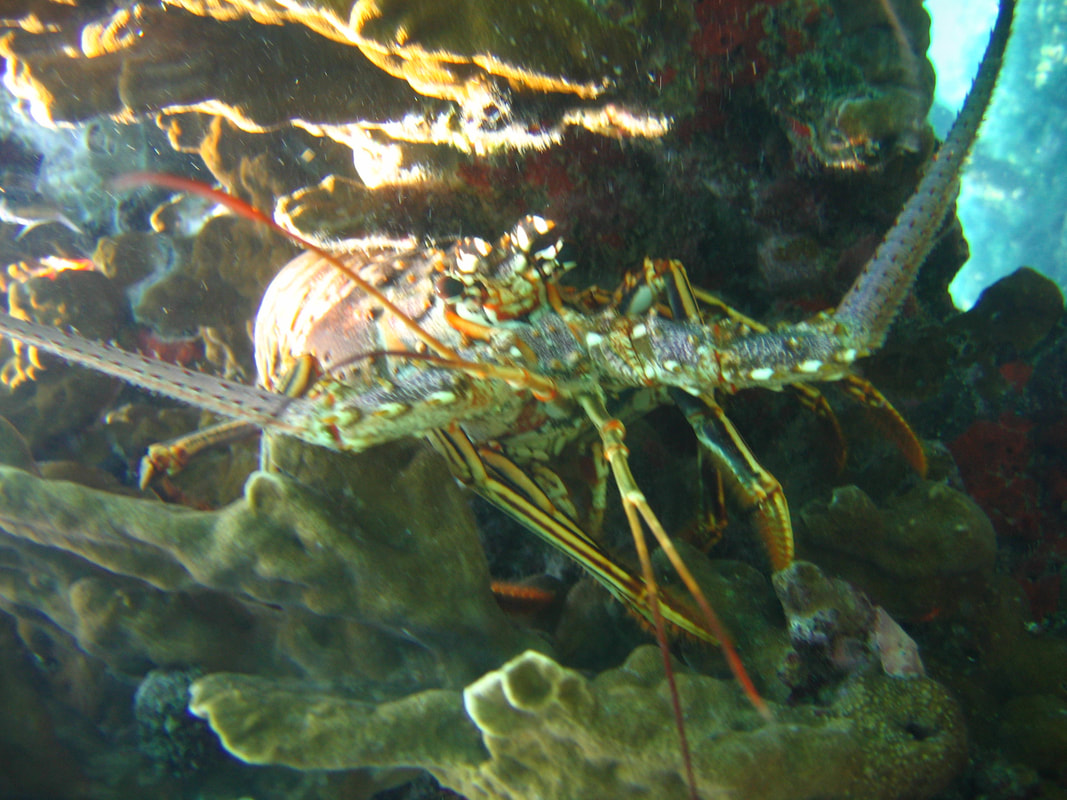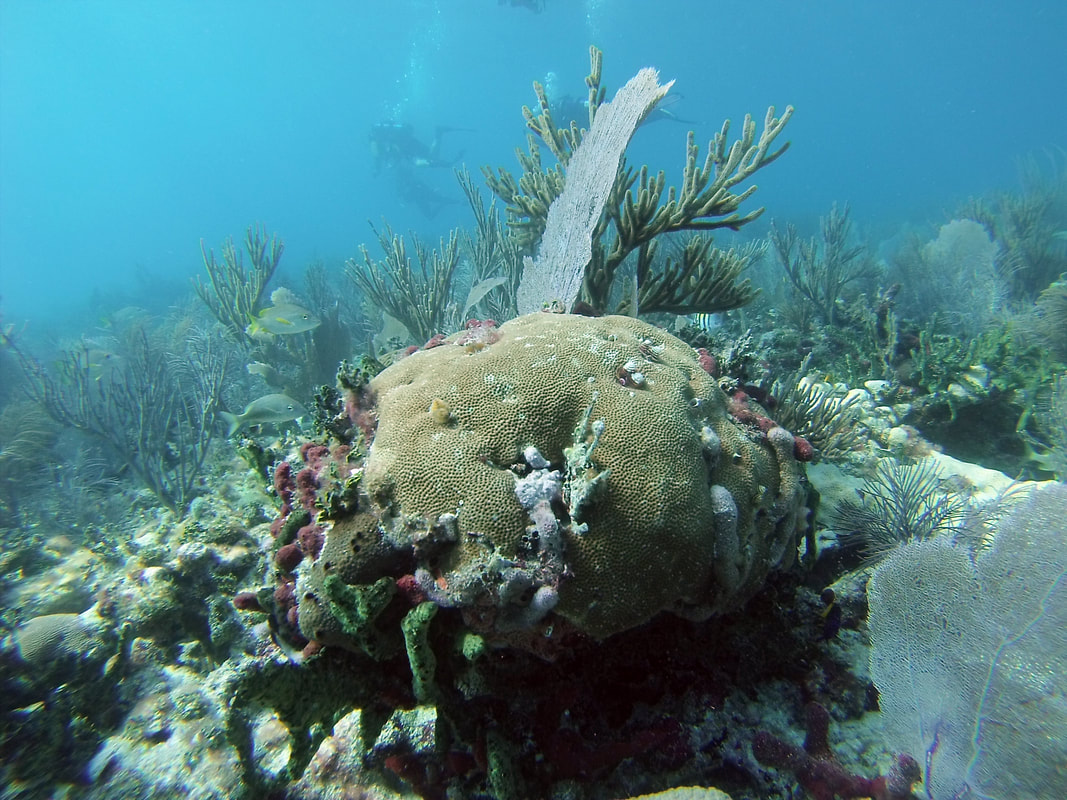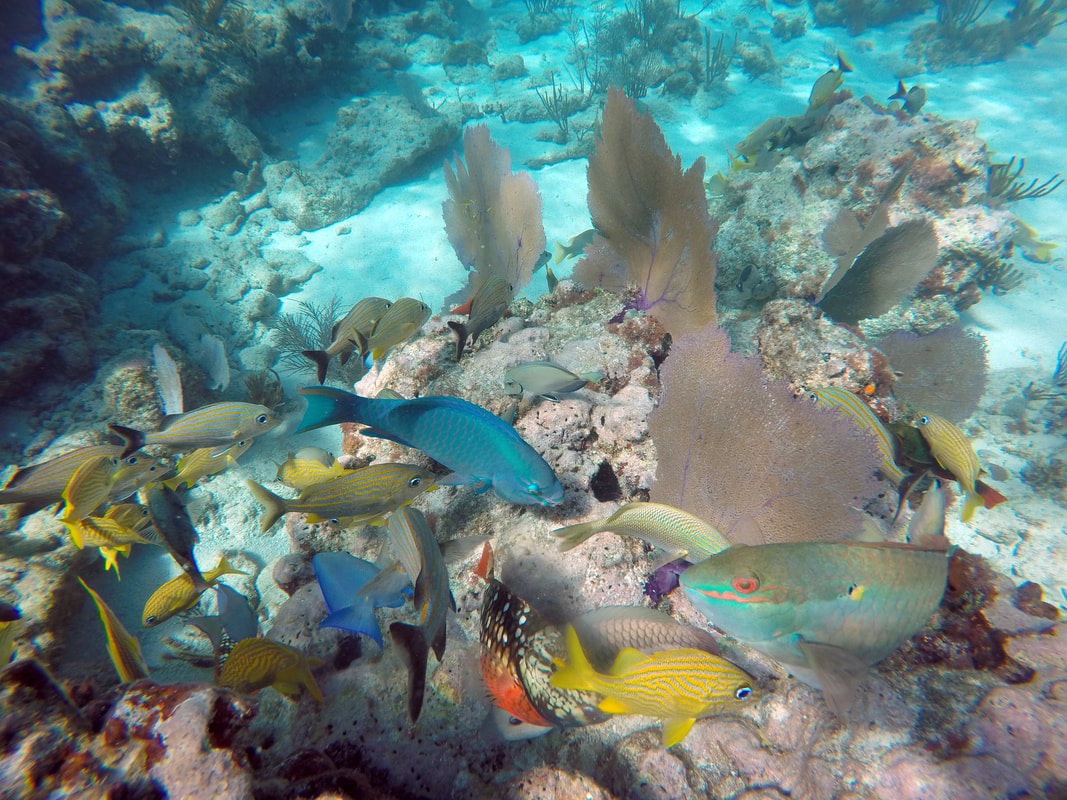|
Spiny Lobsters
Spiny lobsters are one of the most successful commercial fisheries due in large part to their gregarious nature. However, recent changes in their social behavior suggest their response to conspecifics may be changing. Our research seeks to understand the causes and consequences of spiny lobster social behaviors and how they change through ontogeny and habitat changes. A better understanding of how lobsters use conspecific cues for both local and long-distance dispersal is essential to understand how they will respond to ongoing habitat degradation.
Lobster homing using acoustic telemetry
- Madison Ragland |
Corals & Marine Debris
Hard corals are declining at an alarming rate and now represent less than 10% substrate cover in the Florida Keys. There is much interest in identifying the cause of this decline and to identify the conditions needed for successful coral restoration efforts. In the FKNMS, corals come into frequent contact with anthropogenic marine debris from recreational and commercial fishing. Our research seeks to understand the relationship between coral transplant success and marine debris using a combination of manipulative experiments and seasonal community censuses. We hope a build a better model for coral transplant success and recommendations for marine debris removal that will inform future efforts to restore our reef community.
Measuring the impact of ghost trap colonization and reef community structure
- Lauren Bulik Estimating Biomass on Marine Debris - Amanda Turner and Ean Tucker |
Reef Fishes
Coral reefs have some of the high fish diversities of any ecosystem on the planet. There is much concern that with the loss of live corals, these fish communities will lose their ability to carry out important ecosystem functions. To better understand the drivers of reef fish abundance, diversity and functional role, we are using both manipulative and opportunistic experimental approaches to tease apart the role of substrate cover (especially live hard coral) versus structural complexity on the community composition of reef fishes. We are particularly interested in how corallivorous fishes may be influence the epidemic of stony coral tissue loss disease.
Influence of social structure on butterflyfish activity and foraging behaviors
- Kori Hays Influence of damselfish on neon goby cleaner station clients - Cem Geray and Jordan Britt |



